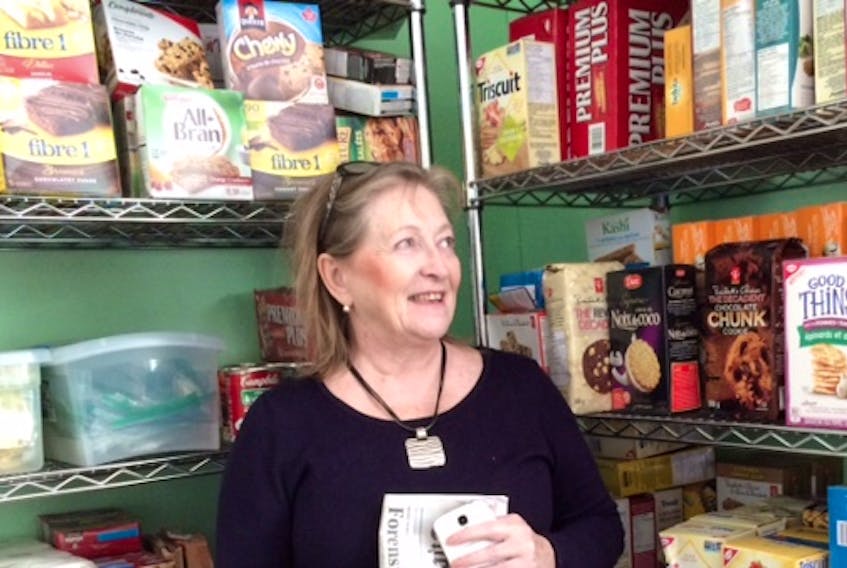“As long as poverty, injustice and gross inequality persist in our world, none of us can truly rest.” — Nelson Mandela
It was a rare dazzlingly sunny day on Tuesday when I visited Emmaus House, a food bank on the cusp of downtown run by five churches in St. John’s.

In the New Testament, Emmaus was a village outside Jerusalem, and it was on the road to that village where Jesus — post-Resurrection — appeared to two disciples as an ordinary man. He walked and talked with them awhile until they stopped to break bread. Suddenly, they recognized their fellow traveller for who he really was. Jesus promptly vanished.
At Emmaus House, just around the corner from the Basilica of St. John the Baptist, the volunteers never know who will show up from one day to the next seeking sustenance, because the path of need is unpredictable and indiscriminate. A sign posted on a door inside says, “Lord, we know that You’ll be coming through this line today. So help us to treat You well.”
Perhaps it’s a reminder that poverty and hunger can happen to any of us, and to park any assumptions at the door, roll up your sleeves and get to work helping others — treating them with dignity — just because you can.
Emmaus House occupies space that was a priests’ residence years ago, a warren of no-frills rooms in an institutional palette. Bedrooms have been converted into shelved pantries for storing food, with rows of cereal boxes and canned vegetables, bottles of juice and tinned milk. Incongruously, along with the tins of beans and packages of Kraft Dinner, someone has dropped off a couple of bottles of pomegranate molasses and a can of “Cowboy Cookout” natural dog food.
“On real stormy days when someone comes in and you know they have to walk here, and you know they have to walk home, and you see what they’re wearing … there’s times I’d say I’d want to give away my coat.” — Susan Halley, Emmaus House
What was once a living room is now a waiting room, where mismatched and well-worn chairs line the walls so people can sit and wait for their number to be called.
On Tuesdays, volunteers from the Anglican Cathedral are on duty, while the other four weekdays are looked after by people from the Basilica, St. Thomas’, St. Patrick’s and St. Michael and All Angels. It’s a collaboration that’s worked for many years.
“It’s community outreach here,” says Susan Halley, chair of the Emmaus House board, who threw herself wholeheartedly into volunteer work after retiring from the phone company. “There’s never any religious outreach. We’re all just the same.”
On this morning, the volunteers are getting organized before the food bank opens at 1 p.m. They manoeuvre around each other in the cramped quarters with the ease of longtime dance partners; the mood is upbeat — a foil for the depressing hardship they encounter regularly.

People who need food banks in St. John’s can avail of one hamper per month, and the rule is enforced as well as it can be, though there are occasional emergencies they just can’t ignore.
Halley says a woman showed up recently who had already collected her monthly quota, but said she had got up that morning and not had any bread to give her three children. They gave her what they could.
“You have to be here to hear the stories,” Halley said, “and I know not everyone wants to hear the stories.”
March and April are particularly cruel months. Even some households that can afford to donate to the food bank are still feeling the post-Christmas financial pinch, and donations don’t usually pick up again until Easter.
With the downturn in the economy, and the high cost of heat and fuel and food and lodging, the need is growing.
“On real stormy days when someone comes in and you know they have to walk here, and you know they have to walk home, and you see what they’re wearing … there’s times I’d say I’d want to give away my coat,” Halley says.
“When you’re dealing with people who don’t have much, that can be frustrating.”
But there are ways to help. I’ll explain how in my Saturday column.
Pam Frampton is The Telegram’s associate managing editor. Email [email protected]. Twitter: pam_frampton









